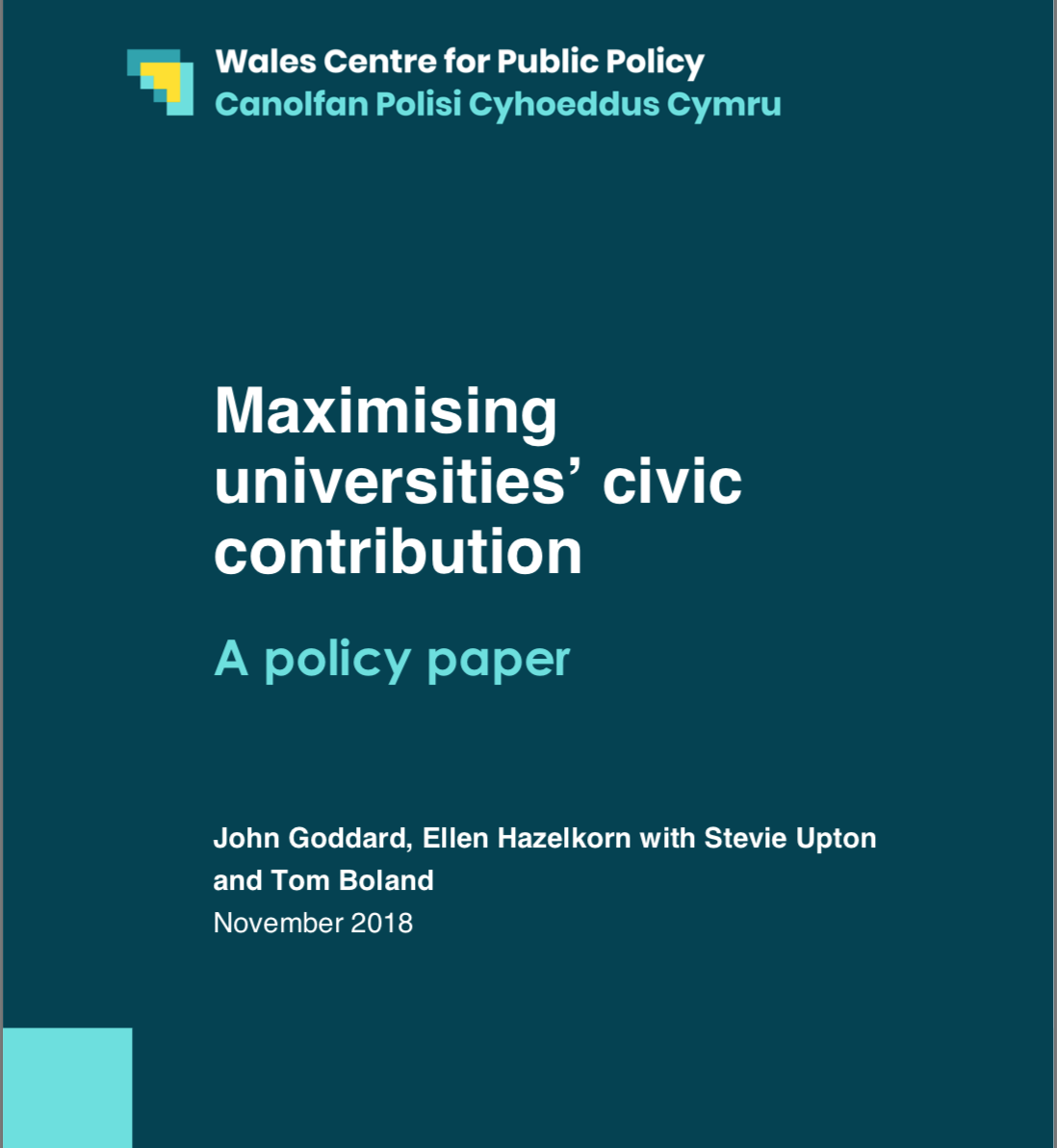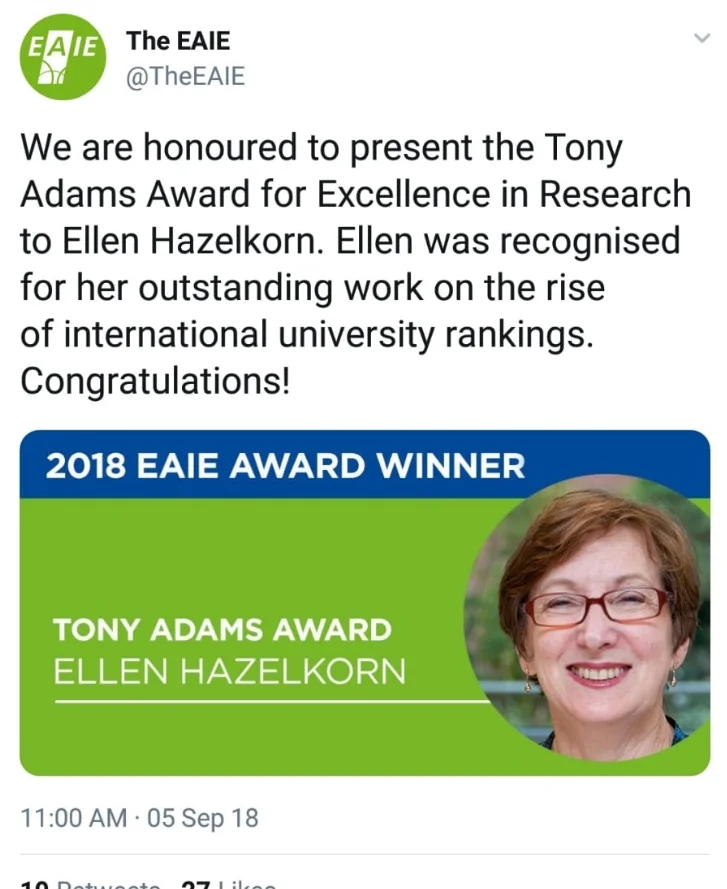Populism as a political creed has, in recent years, burst onto a truly world stage. Our higher education institutions need to take the threat of populism seriously and deliberately and strategically set out to instil in students and graduates qualities of integrity, respect for knowledge, a capacity for analysis and informed engagement with politics and ideas.
Read MoreThe recent Higher Education Authority analysis of completion rates among undergraduate students offers many grounds for congratulation: overall the figures compare well with international benchmarks. But they raise some important issues, especially given relatively higher dropout rates in institutes of technology and in IT courses. In addition, Irish graduate literacy and numeracy rates have fallen significantly over the last 20 years.
Are there implications for the governance and organisation of the post-secondary system in Ireland?
Read the following articles
Read MoreThis seminar will discuss issues relating to the skills agenda and the impact of Ireland’s post secondary education system. Among the issues to be explored will be how the further and higher education systems, as well as apprenticeships, could be better brought together as a coherent system of education and training. The New Zealand experience is instructive as the Tertiary Education Commission (TEC) combines most of this area under one agency. The OECD experience will bring further international experience. The international experience will be complemented by the Irish experience, from the perspectives of SOLAS and EI.
There will be plenty of time for discussion.
Wednesday, 20 February, 2019. RIA, Dawson Street, Dublin.
Read MoreThe best way to defend our values and way of life is to take the battle to the populists and expose their chicanery wherever we see it, but all the while be attentive to the voices of people who feel left behind by what most of the rest of us see as “progress”. And come on our higher education leaders and academics, join the good fight.
Read MoreThis report understand universities’ civic mission as their commitment to bettering the local and regional communities of which they are part. A civic mission is an acknowledgement that universities have an obligation to act in this way, and civic engagement is the process by which this is achieved.
Universities’ potential for civic engagement in Wales is shaped by several factors: institutional origin and subsequent development, the Welsh, and UK, higher education
policy context and the globalisation of higher education and the economy at large.
Tom Boland, education consultant and former chief executive of the Higher Education Authority, said populism was something Ireland must also engage with on a domestic level.
“Populism seems to be a breakdown in trust between those who support populist parties and institutions of the state and government, the establishment and elites. And among all the elites are everyone here present,
Read MoreEllen Hazelkorn was awarded the Tony Adams Award for Research Excellence.
Read MoreThis is the first comprehensive reference book exploring all issues regarding assessing, measuring and comparing quality, performance and productivity of higher education. There are 43 chapters laying out current research in the field and bringing it up to date with cutting-edge theoretical and empirical contributions from leading international experts.
Read MoreKilkenny County Council engaged BH Associates to explore the case for a substantial higher education provision in Kilkenny city to support the social and economic development of the city, county and region through the provision, attraction and retention of graduates with high level skills. The report, From Charter to Framework: The Case for Higher Education Provision in Kilkenny, was launched by the Minister of State at the Department of Education & Skills, with special responsibility for Higher Education.
Read MoreWe want to use this article to explore two inter-related issues – the erosion of public trust in higher education and the ever expanding and changing requirements of public accountability systems, as we think addressing the latter is an important aspect in countering the former.
Read MoreThis is the first seminar to be hosted by BH Associates, who have as one of their objectives to create opportunities for public debate on education matters.
There are two key, and separate, aspects to the functioning of higher education institutions (HEI) - academic freedom and institutional autonomy. The academic freedom of institutions enjoyed broad political and societal support. But, in the case of institutional autonomy, the matter was not so clear-cut.
Read MoreSession to be held at CHEA conference, 2018, Washington, DC
Higher education is under pressure to be more transparent and accountability for its education and research. Almost everywhere a war of words has opened-up about credential relevance, career readiness and cost vs. price. We have traditionally relied on peer-review and self-reporting, but critics (and even some of our friends) are saying this is no longer adequate. To what extent are students and the “public” distrustful of higher education or are the media and political officials actively encouraging such distrust? Can traditional forms of academic accountability, such as quality assurance and accreditation, continue to deliver public assurance of the quality of institutional performance or are new forms of external verification required? How do we balance different perspectives?
Read MoreFor all the Cabinet meetings held on university campuses, the smiling photo ops of Ministers at launches and sod turnings, the fine phrases of presidents in introducing politicians you would be forgiven for thinking that there is a strong and positive relationship between the universities, institutes and the political system. You would be wrong. Underlying the smiles and mutual congratulation lurks a damaging mutual distrust that is in part unique to higher education but also part of a wider context which sees significant disenchantment with key institutions of the State and civil society. ...
Is there an appetite on the part of all sides to come together and forge a new understanding, a rebalancing of regulation and autonomy and a rededication to mutual respect? We would all be winners.
Read MoreSEMINAR
Higher Education and the Public Interest
Thursday, 14 December, 8.30-11.30am (Coffee from 8.00am)
Royal Irish Academy, Dawson Street, Dublin
Read MoreFor more than a decade we have been talking about the key issue for both undergraduate education and research - how do we sustainably fund undergraduate education? A solution will not come easy. It requires leadership.
Read MoreQuality is an increasingly important concept and virtue for higher education, and for governments. The UK government has introduced the Teaching Excellence Framework. Will it work?
Read MoreHigher education has long argued that it is a public good because of its contribution to societal goals. These assumptions are coming under growing public scrutiny as universities seek to pursue their own agenda, at home and increasingly internationally. This report looks at some of the issues.
Read MoreAs questions are asked about the relevance and value of our public institutions, the public is also asking whether higher education is serving its interests. Those interests inevitably vary depending upon who is asked – students, parents, employers, politicians, etc. There is no single blueprint. But there is the necessity for higher education institutions to learn from each other and by working together to develop frameworks for institutional leadership and management that recognise the importance of civic engagement and institutionalise this activity into the academic structure and professional support mechanisms of the university.
Read MoreUniversities around the world, many more than will ever publicly admit it, are currently obsessed with gaining status in one or more national or global ranking of universities. They should quit now.
Although some may succeed in becoming ranked or may improve their numerical scores marginally, it is almost never worth either the resources required or the substantial changes in mission or academic programmes necessary.
Rankings have acquired legitimacy because their methodology appears statistically rigorous and independent. They also appear to be the only way to compare performance and quality internationally. But, rather than using rankings, governments and HEIs should focus on benchmarking – such as that promoted by ACU. This uses a sophisticated combination of qualitative and quantitative methodologies to embrace and embed the full spectrum of teaching/learning, research/discovery and innovation/engagement.
Read More



